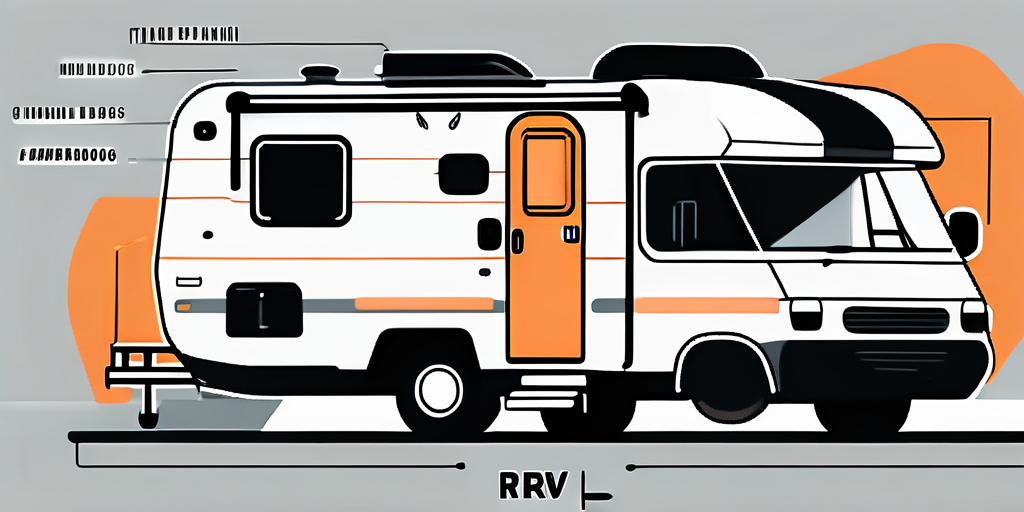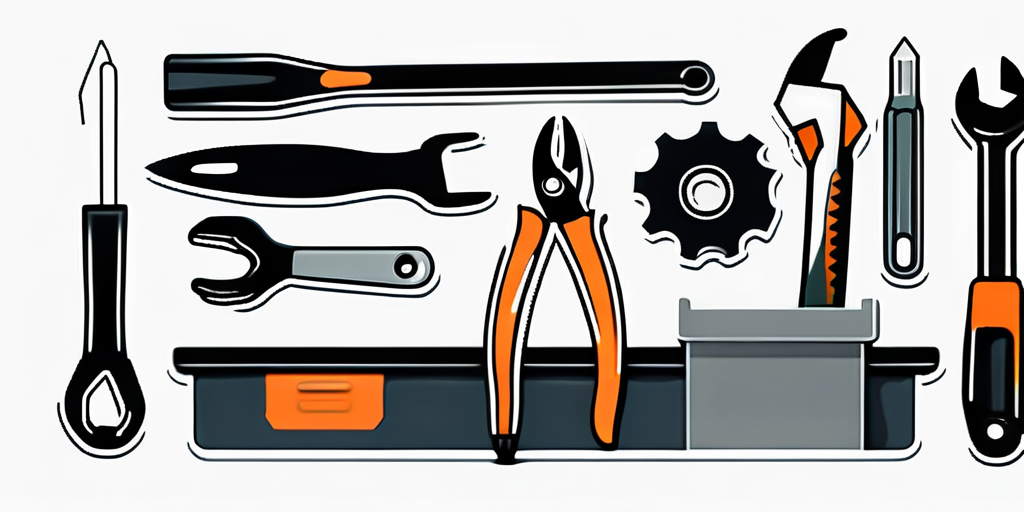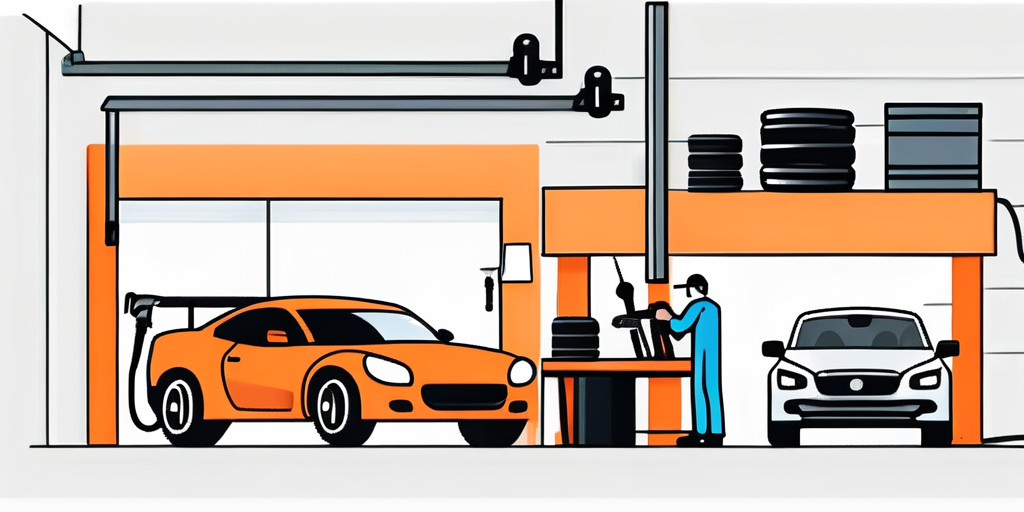Be the First to Know!
Stay up-to-date on all things Lazydays RV with access to the latest sales, promotion details, sweepstakes, and more offers you won't want to miss.
Thank you for subscribing!

Embarking on a journey with your recreational vehicle (RV) can be an exciting adventure. However, it's not always smooth sailing. Unexpected breakdowns and malfunctions can occur, turning your dream vacation into a nightmare. But don't worry, with the right knowledge and a little bit of preparation, you can handle these situations like a pro. In this comprehensive guide, we will provide you with some essential emergency RV repair tips to help you when things go wrong.
Before we delve into the repair tips, it's crucial to understand your RV's basic components. Familiarizing yourself with the different parts of your RV will make it easier to identify and fix problems when they arise. This knowledge can also help you communicate effectively with a professional mechanic if necessary.

Your RV is essentially a mobile home, complete with a kitchen, bathroom, bedroom, and living area. Each of these areas has its own set of appliances and systems that require maintenance and care. Additionally, your RV has a motor and a chassis, just like any other vehicle, which also need regular checks and upkeep.
The systems in your RV include the electrical, plumbing, heating, and cooling systems. The electrical system powers your appliances, lights, and outlets. The plumbing system includes your fresh water, grey water, and black water tanks, as well as your sinks, shower, and toilet. The heating and cooling systems keep you comfortable in different weather conditions.
Each of these systems has its own set of potential issues. For example, electrical problems can lead to power loss, while plumbing issues can result in leaks or blockages. Heating and cooling system malfunctions can leave you too hot or too cold. Understanding these systems and their common problems can help you troubleshoot and fix issues when they arise.
The motor and chassis of your RV are just as important as the systems inside. The motor propels your RV, while the chassis supports the entire structure. Common issues with the motor include engine problems, transmission issues, and brake malfunctions. Chassis problems can include tire issues, suspension problems, and frame damage.
Regular maintenance of the motor and chassis can prevent many of these issues. However, if problems do arise, knowing the basics of how these components work can help you diagnose and fix them, or at least make an informed decision about what to do next.
Now that you have a basic understanding of your RV's components, let's move on to some general repair tips. These tips can help you address a wide range of common RV problems.

First and foremost, always have a well-stocked RV repair kit on hand. This kit should include basic tools like a screwdriver, wrench, pliers, and duct tape, as well as RV-specific items like fuses, light bulbs, and sealant. With these tools at your disposal, you'll be prepared to handle many common RV issues.
When dealing with electrical issues, always start by checking your RV's fuses and circuit breakers. A blown fuse or tripped breaker is often the cause of power loss. If you find a blown fuse, replace it with a new one of the same rating. If a breaker has tripped, reset it by flipping it off and then back on.
If your RV is still without power after checking the fuses and breakers, the problem may be with your battery. Check the battery's voltage with a multimeter. If the voltage is low, try recharging the battery. If the battery won't hold a charge, it may need to be replaced.
Plumbing issues in your RV can range from leaks to blockages. If you notice a leak, start by identifying the source. Once you've found the leak, you can use sealant or plumber's tape to patch it up. If the leak is severe or in a hard-to-reach area, you may need to call a professional.
Blockages in your RV's plumbing system can often be cleared with a plunger or a plumbing snake. If these tools don't work, you may need to use a specialized RV drain cleaner. Be sure to follow the instructions on the product label to avoid damaging your pipes.
If your RV's heating or cooling system isn't working properly, start by checking the thermostat. Make sure it's set to the right temperature and mode. If the thermostat is working but the system isn't, the problem may be with the furnace or air conditioner itself.
Common furnace issues include a dirty filter, a malfunctioning pilot light, or a broken blower motor. Air conditioner problems can include a dirty filter, a frozen evaporator coil, or a faulty compressor. Some of these issues can be fixed with basic tools, while others may require professional help.
While it's beneficial to know how to perform basic RV repairs, there are times when it's best to call a professional. If you're dealing with a major mechanical issue, a complex electrical problem, or a severe leak, it's often safer and more cost-effective to hire a professional mechanic.

Additionally, if you're not comfortable performing a repair or if you're unsure about what's causing the problem, don't hesitate to seek professional help. Attempting to fix a problem without the proper knowledge or tools can often lead to more damage and higher repair costs.
Remember, your safety and the safety of your passengers is always the top priority. If you're ever in doubt, it's best to err on the side of caution and call a professional.
Traveling in an RV can be a wonderful experience, but it's important to be prepared for the unexpected. By understanding your RV's components, knowing how to perform basic repairs, and recognizing when to call a professional, you can handle most emergency situations with confidence.
Remember, the key to successful RV ownership is regular maintenance and care. By taking care of your RV and addressing problems as they arise, you can ensure that your RV stays in good condition and continues to provide you with many years of adventure and enjoyment.
While you're mastering the art of emergency RV repairs, remember that the right RV can make all the difference in your travels. Visit Lazydays RV to Shop RVs Now and discover why our commitment to quality service and customer satisfaction makes us a trusted partner for RVers everywhere. Whether you're looking for your first RV or ready to upgrade, Lazydays RV is here to ensure you're prepared for the road ahead—wherever it may lead.